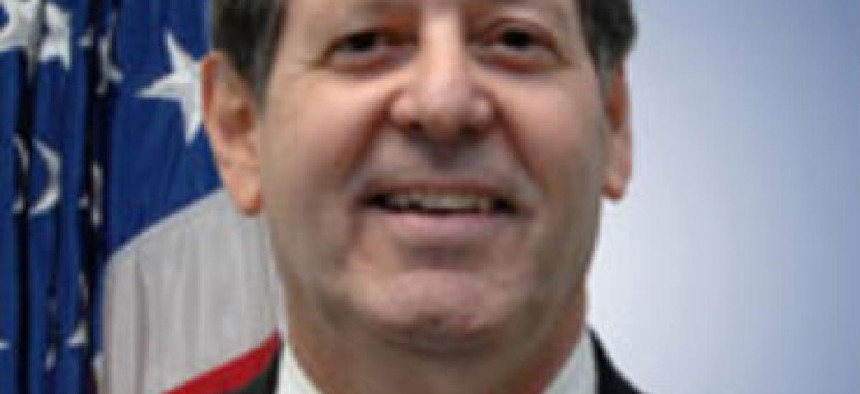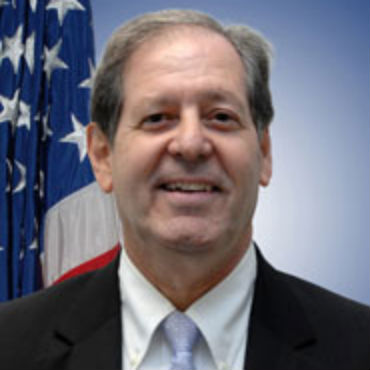Cooper back in the saddle at Commerce

After a 40-year career, Steve Cooper came out of retirement to take the CIO reins at the sprawling agency.

Steve Cooper said he was so inspired by his interview with Commerce Secretary Penny Pritzker that he decided to come out of retirement to take on the CIO role at the Commerce Department.
Cooper is stepping into the shoes of long-time CIO Simon Szykman, who announced in February he would be leaving the department after seven years.
Cooper is armed with a combined total of 40 years of federal and private-sector experience as he takes on the challenge of overseeing IT operations for a federated department with 12 agency CIOs and more than $1 billion worth of programs listed on the IT dashboard.
Cooper has previously acted as CIO at the Federal Aviation Administration and was the first CIO at the Department of Homeland Security, as well as serving in President George W. Bush’s administration as special assistant for homeland security and senior director for information integration in the White House Office of Homeland Security.
FCW sat down with Cooper to talk shop about his vision for the Commerce Department. Below are excerpts from the interview, edited for clarity.
Q: You have been in this role for about two months. What have you identified as some of your top priorities so far?
I can’t promise I won’t make mistakes at Commerce, but the chance that I’ll make the same mistake twice is pretty slim.
A: Operational excellence -- that’s number one. The second is joint with the bureau CIO community, to figure out a way for the IT community, headed by myself and the bureau CIOs, to work together to become more effective and more collaborative with IT service delivery. The third is to essentially move the department, with regards to technology and information, into the 21st century, which does indeed kind of imply that in some parts of the department we are not in the 21st century. What I have learned, in some of the bureaus and certainly at HQ, is that we haven’t always been able to replace aging infrastructure and equipment. Any time you have things that are mechanical and electronic, they need maintenance, and when they don’t get maintenance, they break. We are working effectively and collaboratively with our CFO and bureau CIOs to identify and make the appropriate investments, beginning with this year.
Q: And cybersecurity?
A: The first step is to gain situational awareness, and think of it as taking inventory of what we have and where we are. We have done that. We’re working with CIOs at the bureaus and the CISO community across the department and we have essentially taken inventory and established a risk-profile of the cybersecurity posture. Going forward we now have a mechanism in place and we will update that risk profile on a monthly basis. I, as the CIO, will report that to the secretary and the executive management team.
Q: How involved is Secretary Pritzker in the work you’re doing as CIO? What role does she play?
A: She’s made a huge impact. The reason I accepted the position was the result of my interview with the secretary. She impressed me so much that I wanted to come back to government and work with her. Her understanding of the importance of technology and information in all of the bureaus at Commerce is phenomenal. Quite simply, it really differentiates the department, and makes it easier for the Department of Commerce to do our job because of the visible and vocal support we get from Secretary Pritzker.
One of the biggest challenges in any organization is working with all of the different missions each bureau has. The learning curve isn't steeper, it's wider.
Q: She has also been a champion for the release of more Commerce data, and announced in July 2014 that the department would be hiring a Chief Data Officer.
A: Exactly. We’re not the first agency to get into data, but the neat way the Commerce Department is approaching the CDO position is that it’s an office that reports directly to the deputy secretary and is collaborative with the Office of the chief information officer. In most federal agencies, with the exception of the Federal Reserve, most CDOs report to the OCIO. The way we’re positioning this role as being external to the world, emphasizes how importantly we see data.
Q: What are some of the biggest challenges you see at the Department?
A: One of the biggest challenges in any organization is working with all of the different missions each bureau has. The learning curve isn’t steeper, it’s wider. I’m learning that if I learn one bureau, I still have to learn the others. It’s a challenge that is overcome with time. The other thing that becomes a bit of a challenge is, because the bureaus have historically operated in siloes, you don’t have a whole lot of mission space that creates opportunities to collaborate. It’s not a negative though, they are accomplishing their missions. But we have a directive from the secretary saying there needs to be collaboration. And for that we are really using the internal Commerce Department CIO Council to tackle that particular challenge.
Q: A lot of CIOs talk about the challenge of culture, is that also the case at the Commerce Department?
A: The federal government, in my experience working at three different and very large agencies, works exactly as the founding fathers designed it—for evolutionary change. We live in a world where change is typically revolutionary. Here in the government when it comes to changing the culture, historically it can be done, but it is evolutionary. Operating in a real-time world, look at what social media and the Internet has done, people around the globe have information instantaneously. The challenge becomes how do you help the culture of the department and the employees at Commerce to move from a risk-adverse culture to a risk-aware culture. This isn’t anyone doing anything incorrect, it’s the way the culture has been brought up. Now technology is changing things so rapidly that we can’t operate the same way we’ve operated in the past and we have to recognize that.
Q: How has your previous experience prepared you for undertaking this role?
A: Here’s the simple truth: I’ve made a lot of mistakes in my 40 years. I’ve also had an awful lot of success. I can’t promise I won’t make mistakes at Commerce, but the chance that I’ll make the same mistake twice is pretty slim. Working in the government gives you a whole set of tools that you can apply to address challenges and problems you face in any role. From my perspective, whatever we come up against, myself along with the other 47,000 people at the Department of Commerce -- that’s a lot of brainpower and talent -- I have every confidence we can get the job done.
NEXT STORY: New presidential fellows zoom in on VA


